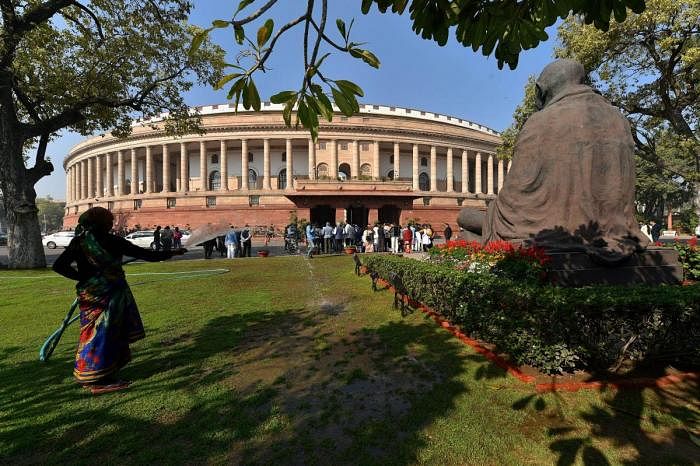
Around 31,300 Hindus and other minority community members from Pakistan, Afghanistan and Bangladesh will be the "immediate beneficiaries" of the contentious Citizenship (Amendment) Bill if it clears the Parliament hurdle.
This was disclosed by the Intelligence Bureau (IB) to the Joint Committee of Parliament on the Bill, as per a report placed in Parliament last week.
While the IB told the panel that a section of illegal Bangladeshi migrants are indulging anti-national activities, the agency goes on to say that there is "no security implications" if citizenship is given under the new amendment as "all these persons are already living in the country for decades".
After the committee tabled its report, the Lok Sabha passed the Bill on January 8 but could not take it up in Rajya Sabha. Assam witnessed large-scale violence over the passage of the Bill, which seeks to give citizenship to Hindus, Sikhs, Christians, Buddhists, Jains and Parsis who faced religious persecution in Pakistan, Afghanistan and Bangladesh.
When asked by the committee, the IB said, "as per our records, 31,313 persons belonging to minority communities who have been given Long Term Visas on the basis of their claim of religious persecution in their respective countries and want Indian citizenship. Hence, these persons will be immediate beneficiaries."
Among 31,313, the IB said, 25,447 are Hindus, 5,807 are Sikhs, 55 Christians and two each Buddhists and Parsis.
For citizenship, the IB said, they will have to prove that they came to India due to religious persecution. "If they had not declared so at the time of arrival in India, it would be difficult for them to make such a claim now. Any future claim will be enquired into, including through RAW before a decision is taken," it told the panel.
Asked about Ministry of Home Affairs' (MHA) submission that there are large number of illegal Bangladeshi migrants in the country and its security implications, the IB said many of them have been able to obtain official documents like driving licences, ration card and passports and even "claim that they are original residents and citizens of India".
"Some of them have come to notice for indulging in activities prejudicial to national security and their activities are monitored. In some areas, demographic change has been indicated by successive census but the inhabitants claim that they are Indian citizens," the IB said.
When queried about specific security implications of the amendment to grant citizenship to specified illegal migrants, the IB however said, "there is no security implications as all these persons are already living in the country for decades," it said.
The then IB Director Dineshwar Sharma, who appeared before the panel, said there could be many others who have already taken citizenship by various means and possess passport and got their names in voters' list. Tribunals are looking into whether they obtained citizenship through fraudulent means.
Defending the Bill, he said, "from the available data, I think, it will be a small number. I feel that it is from a human angle also because they have they have left their original countries decades back. They are here, they have become citizen-less. They do not get many benefits...from this country and they cannot go back home."
However, a Research and Analysis Wing (RAW) Joint Secretary said their "only concern" is that agencies who are inimical to India should not have a legal framework within which they can exploit the situation and infiltrate their own people.
